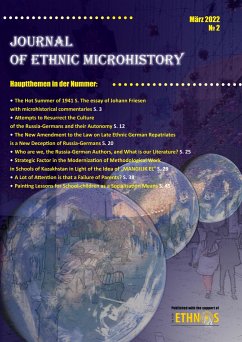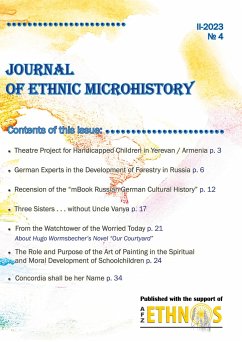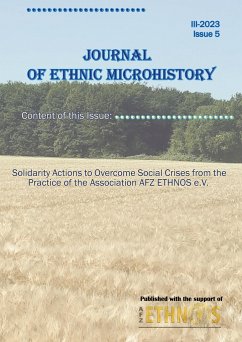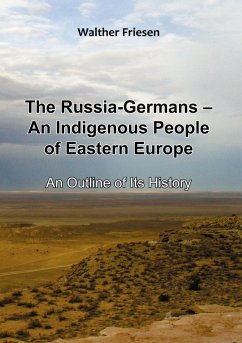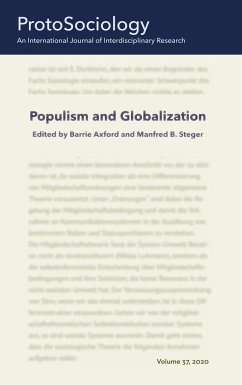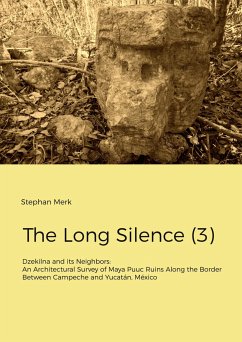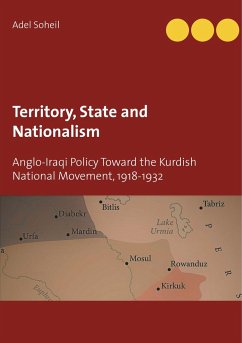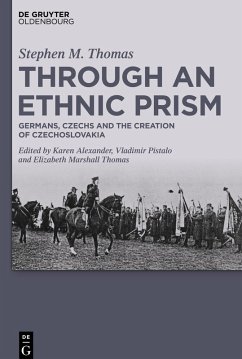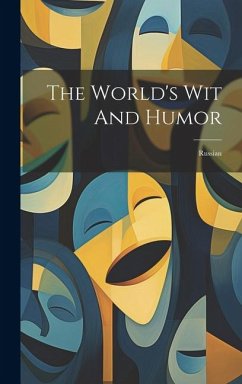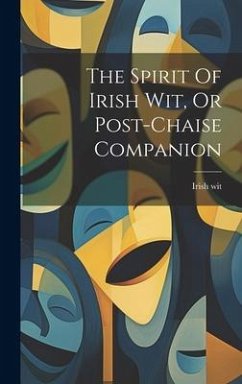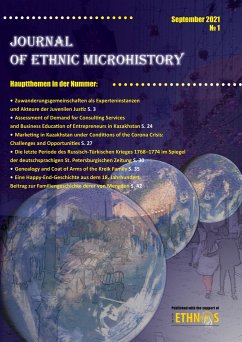
Journal of Ethnic Microhistory

PAYBACK Punkte
0 °P sammeln!
The "Journal of Ethnic Microhistory" is devoted to a relatively young branch of social sciences that explores the daily life of "little people" who are traditionally ignored in the "history of big events" (wars, revolutions, crises) or "biographies of great historical figures". The research domain of ethnic microhistory pertains to the analyses of small territories and small groups of the population attributed to specific ethnic communities. An ethnic group (community) could be defined as a social group that sees itself as an associated social entity due to its intuitive self-image and a sense...
The "Journal of Ethnic Microhistory" is devoted to a relatively young branch of social sciences that explores the daily life of "little people" who are traditionally ignored in the "history of big events" (wars, revolutions, crises) or "biographies of great historical figures". The research domain of ethnic microhistory pertains to the analyses of small territories and small groups of the population attributed to specific ethnic communities. An ethnic group (community) could be defined as a social group that sees itself as an associated social entity due to its intuitive self-image and a sense of togetherness. It could be based on a common self-designation, language, descent, economic order, history, culture, religion or affiliation with a certain area. In order to understand the characteristics of a particular ethnicity, it is necessary to understand how specific people lived and live in specific conditions. Microhistory devotes itself to the study of living and working conditions, recreation preferences, life-style, nutrition traditions, methods of treatment, social adaptation, as well as factors affecting the formation of consciousness, behavioural patterns, and socio-political orientation of a respective group of "ordinary people" belonging to a particular ethnic entity. Microhistory acquires the data necessary for analytical research by means of conducting participant observation, from ancient texts (s. the articles of Alex Dreger in this issue of the journal), archives, church metrics, and documents of medical and official institutions pertaining to pandemic-induced economic situation (Pleten E.V., Kostritzina T. V.: Marketing in Kazakhstan under Conditions of the Corona Crisis: Challenges and Opportunities).




